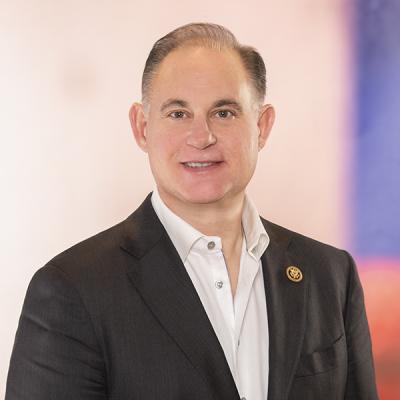Federal Response to COVID-19
In response to the ongoing coronavirus epidemic, the federal government has taken several actions in recent days. The most consequential are the Coronavirus Preparedness and Response Supplemental Appropriations Act (signed into law on March 6), travel restrictions to and from certain European countries (announced March 11), the declaration of a national emergency (which the president made on March 13), and the Families First Coronavirus Response Act (expected to be deliberated and passed by the Senate and signed into law early this week).
ML Strategies’ team in Washington has been closely monitoring these developments, particularly as they relate to our clients. The situation remains uncertain and dynamic; we anticipate more congressional activity in the coming weeks aimed at blunting the pandemic and alleviating its disruptions for various business sectors including small business, travel and tourism, and hospitality.
The actions taken so far have changed policy significantly, at least on a temporary basis, and made available tremendous amounts of federal funding. Already, numerous federal agencies have been granted new authorities by Congress or received new directives from the White House. Additionally, much of the policy changes will be implemented by and federal dollars will flow through state, territorial, and tribal governments. The extent of the response is expansive and complex.
What follows is a high-level explanation of the key elements of the federal response to date.
Highlights of the Coronavirus Preparedness and Response Supplemental Appropriations Act include:
- $3.1 billion for the Public Health and Social Services Emergency Fund to prevent, prepare for, and respond to coronavirus, including the development of necessary countermeasures and vaccines, prioritizing platform-based technologies with U.S.-based manufacturing capabilities, and the purchase of vaccines, therapeutics, diagnostics, necessary medical supplies, and medical surge capacity.
- $2.2 billion for the Centers for Disease Control and Prevention (CDC) to prevent, prepare for, and respond to coronavirus, $950 million of which must be granted to states, localities, or territories to be spent on surveillance, epidemiology, laboratory capacity, infection control, mitigation, communications, and other preparedness and response activities.
- $300 million for the purchase of vaccines, therapeutics, and diagnostics.
- $61 million for the Food and Drug Administration (FDA) to develop necessary medical countermeasures and vaccines, advanced manufacturing for medical products, and monitoring medical product supply chains.
Presidential actions include:
- Restricting travel to the United States from foreign nationals who have recently been in certain European countries (this applies only to the movement of persons, not cargo).
- Instructing the Small Business Administration to use existing authority to provide loans to businesses affected by COVID-19, and asking Congress to increase funding for the program by $50 billion.
- Directing the Department of the Treasury to defer tax payments for certain individuals and businesses negatively impacted by COVID-19, providing more than $200 billion of additional liquidity to the economy.
- Urging Congress to pass payroll tax relief.
- Please click HERE for a transcript of the president’s remarks, and HERE for a White House statement.
Highlights of the Families First Coronavirus Response Act include:
- Free testing for COVID-19.
- $1 billion in funding for unemployment insurance grants.
- A temporary increase in the Medicaid federal medical assistance percentage. Increased funding for the several programs, including but not limited to $500 million in funding for the Special Supplemental Nutrition Program for Women, Infants, and Children (WIC) and suspension of work requirements; $100 million in funding for nutrition grants to Puerto Rico, American Samoa, and the Northern Mariana Islands; and $400 million in funding for the Emergency Food Assistance Program (TEFAP).
- A requirement for health care employers to develop within 30 days of the bill’s passage a control plan for infectious disease exposure.
- Expansion of the Family and Medical Leave Act (FMLA) which allows eligible workers the right to take up to 12 weeks of job-protected leave for qualifying COVID-19 reasons.
- A requirement for employers to provide employees two weeks of paid sick leave, paid at the employee’s regular rate, to quarantine or seek a diagnosis or preventive care for coronavirus.
- Establishment of tax credits for paid sick and paid family and medical leave taken for coronavirus-related reasons.
For a summary of the bill, please click HERE.
Discussions regarding relief for economic disruptions related to the pandemic are ongoing. Congress and the White House continue to hear from impacted sectors. Expect more legislative proposals to emerge in the coming days and weeks as the pandemic continues.





